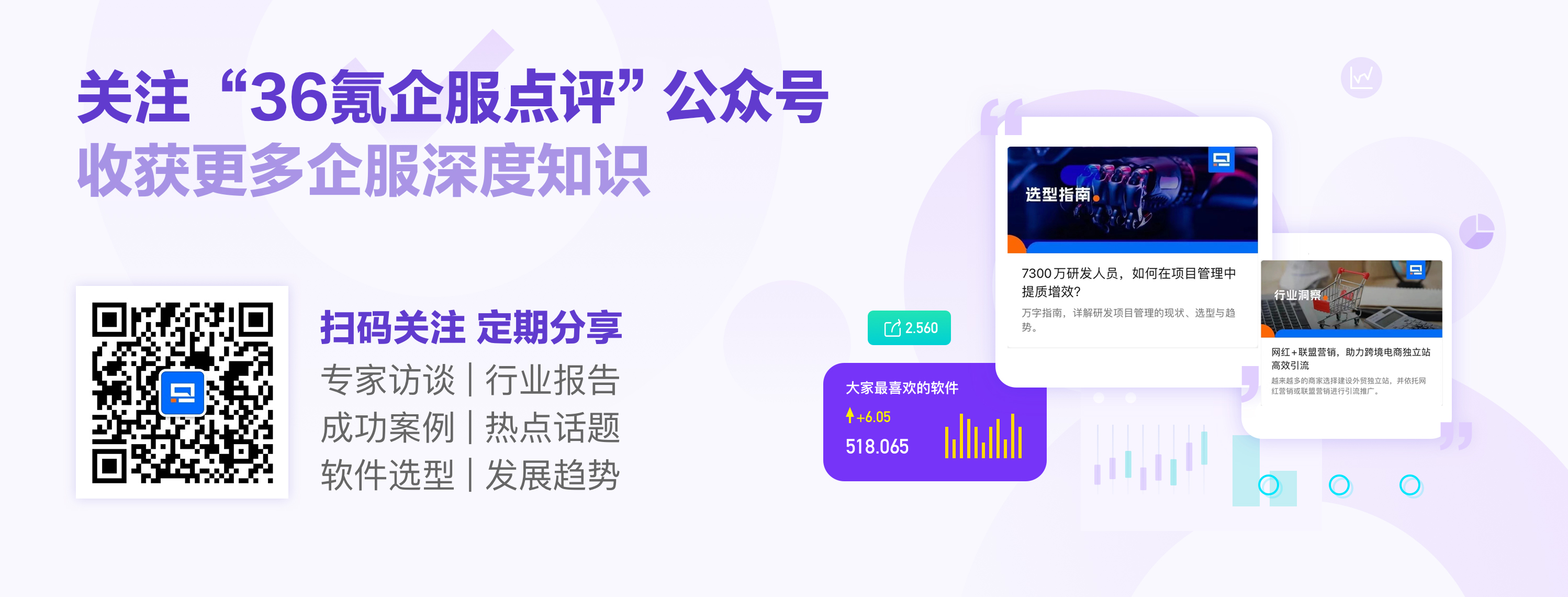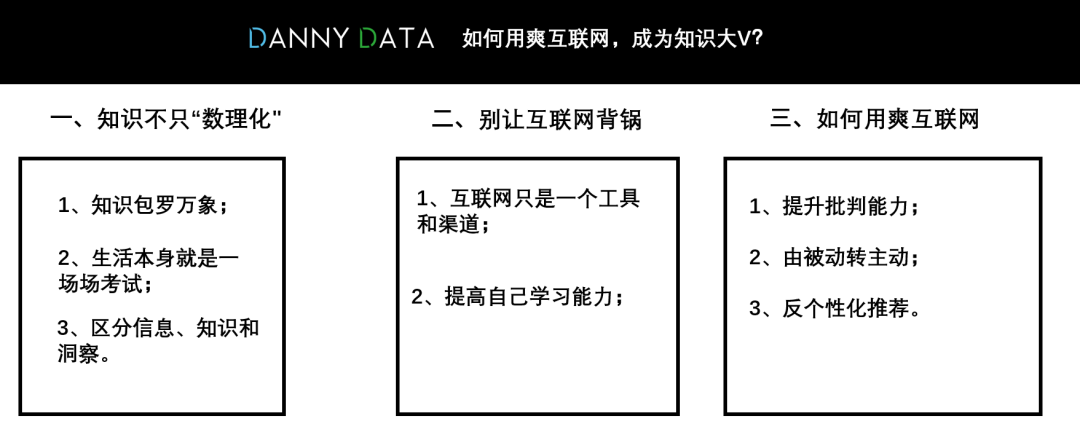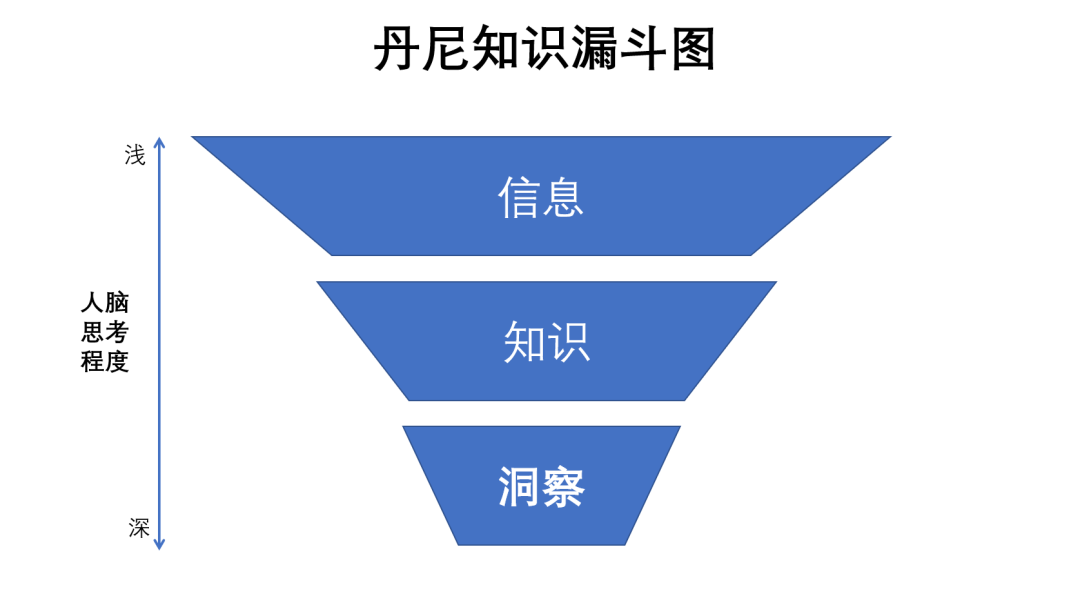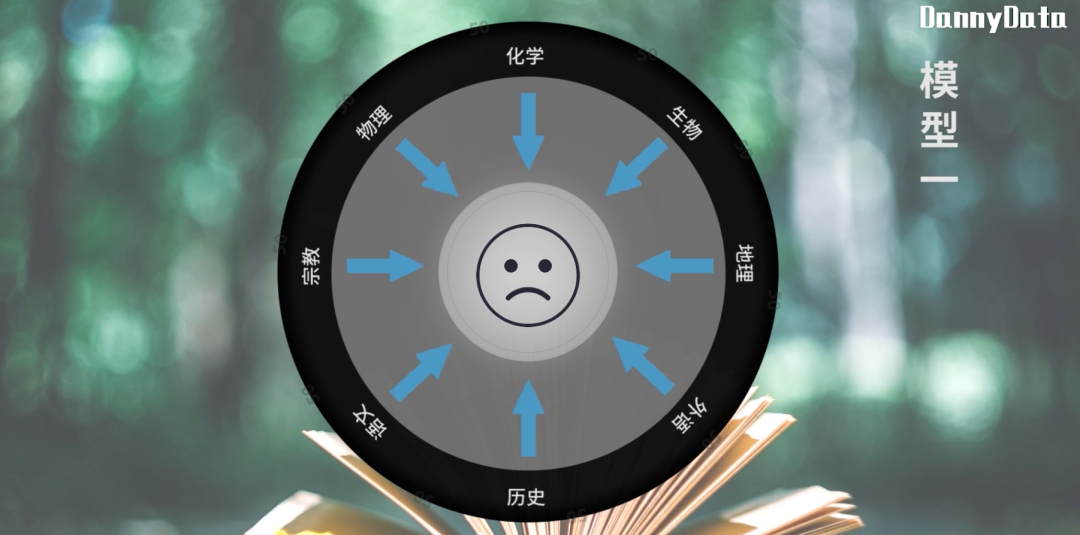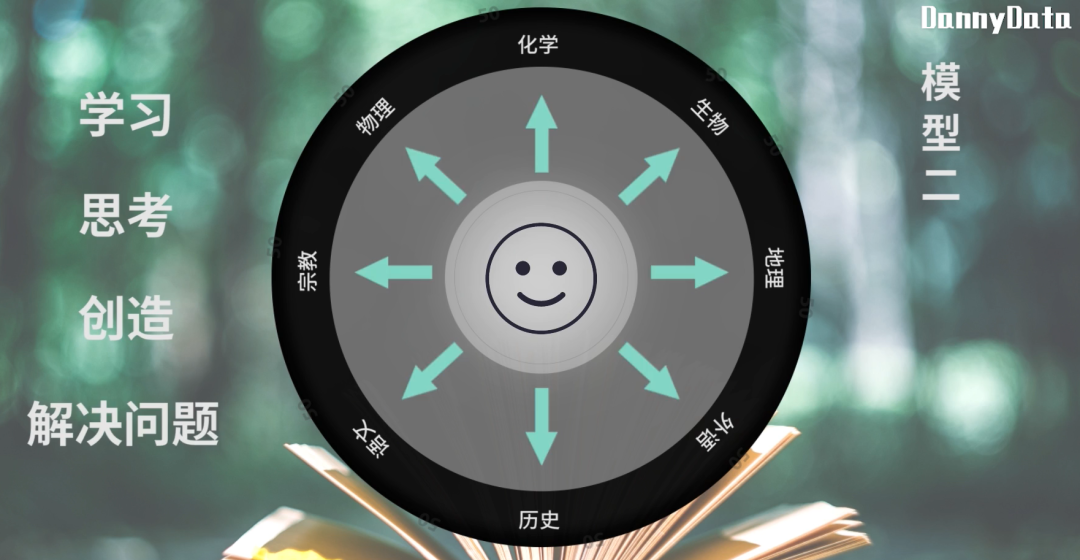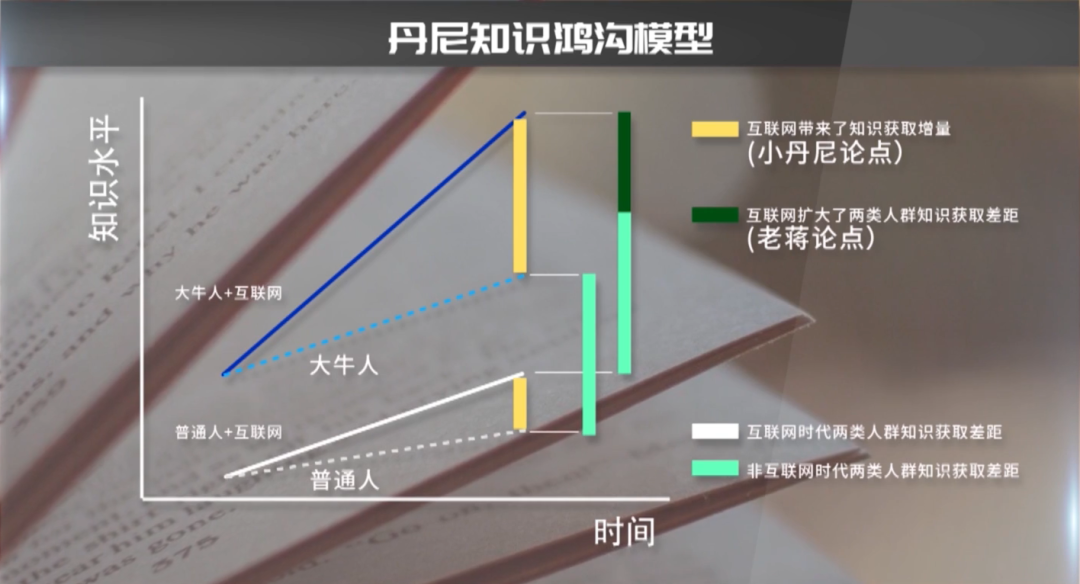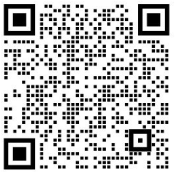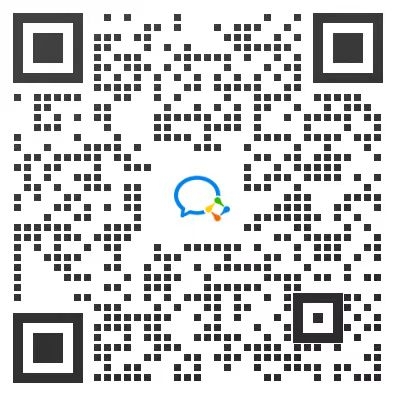如何用爽互联网,成为知识大V?
编者按:本文来自微信公众号“DannyData小丹尼”(ID:dannyteam),作者:小丹尼,36氪经授权发布。
B站让我和老蒋来场辩论赛,人在北京,刚下共享单车,谢邀。我的立场是:互联网填平了知识的鸿沟。
Bilibili invited Lao Jiang and me to have a debate. I’m in Beijing and I just got off a shared bike. Thanks for the invitation. My stand is: the Internet bridges the knowledge gap.
在这里我想先问大家一个问题啊:你们从DannyData或“老蒋巨靠谱”的视频里学到了知识吗?
Before we start, I would like to ask a question first: Have you learned anything from DannyData’s videos or Lao Jiang’s videos?
那我接着问:你们都在什么地方看DannyData或“老蒋巨靠谱”呢?答案当然不是在中学大学的课本里,也不在父母老师的说教里,更不在期末考试的试卷里,而是三个字:小破站,啊不,互联网。
Then comes the next question: Where do you watch these videos? The answer is obviously not in the textbooks of middle schools or universities, or in the teaching of parents and teachers, or in the final examinations, but three words: on Bilibili, excurse me, on the Internet.
所以今天我将从三个方面来谈谈:互联网填平了知识的鸿沟。
So today I will talk from three aspects about how the Internet bridges the knowledge gap.
我是小丹尼,谈车说科技,本集视频不再遵循我的标准:随你反驳。而是:随老蒋反驳。
I'm Danny. I talk about tech and cars. Today's video will not follow the usual standard — refute as you wish but refute as Old Jiang wishes.
01 知识不只“数理化"
先说第一点,知识不只“数理化"。
First, knowledge goes beyond the scope of mathematics, physics, and chemistry.
我们先要把“知识的定义"搞清楚,再去讨论“互联网填平了知识的鸿沟”。其实明确定义非常重要,我们不能像很多情侣吵架一样,两人对吵架原因的定义不同,男生在谈“我到底错在哪儿了”,女生在谈“你认错态度的到底好不好”,最终只能靠男生跪搓衣板或键盘来解决问题了。
Before discussing how the Internet bridges the knowledge gap, we should first clarify the definition of knowledge. Indeed, a clear definition is very important. Otherwise, we will just be like a couple in a fight, where two of them have different definitions of the cause of the argument. Usually, the man is talking about "What are my mistakes?", while the woman cares more about the partner’s manner and attitude. In the end, reconciliation can only be reached by the man’s kneeling on the washboard or the keyboard.
那知识的定义是什么呢?
So what is the definition of knowledge?
我的答案是:知识不只是你在上学时期学到的“数理化”“文史哲”,而是包罗万象的。
My answer is knowledge goes beyond the scope of mathematics, physics, and chemistry or the scope of literature, history, and philosophy. Knowledge is all-encompassing.
比如当你去网上刷湖人队比赛去学习科比的脚步时,是体育知识吗?当你在小破站的知识区,去看罗翔老师讲张三的视频时,是法律知识吗?当你在网上搜罗看文艺、爱情、动作片时,是电影知识吗?我猜有些同学不一定认为那是电影知识,可能是一些奇奇怪怪的知识,那毕竟也是知识啊。
For example, when you watch the Lakers games repeatedly and learn the footsteps from Kobe, don’t you gain sports knowledge? When you watch the videos of Professor Luo Xiang talking about the criminal cases of John Doe on Bilibili, don’t you gain legal knowledge? When you search for and watch the literary, romance, and action movies on the Internet, don’t you gain film knowledge? Well, I guess some of you do not necessarily think that's film knowledge, but some strange knowledge. Whatever, it is knowledge after all.
所以我们要明确一点:不是只有考试的知识,才叫知识。
Thus, we need to be clear that knowledge goes beyond what are examed.
换一个角度来说,生活本身就是要面对一场场考试,不是你毕业了就不再考试了,只不过考试的姿势不同,比如我之前视频里讲的面试最难题、领导交给你的任务什么时候完成、该去哪儿约会、情人节该送什么礼物等等,其实都是考试。
To put it another way, life itself is about facing tests. It will not end as you graduate but comes in different forms. As I mentioned in the previous videos, the most difficult question in the interview, tasks from your managers, places to date, gifts to show your love on Valentine's Day, etc., all of them are tests of life.
这里我们要引入一个“丹尼知识漏斗图”,其实在我看来,很多人没有搞懂“信息”、“知识”和“洞察”的区别,漏斗图分为三层,自上而下,人脑思考程度由浅入深:
Here I‘m going to introduce a "Danny‘s Funnel of Knowledge". In my opinion, many people do not recognize the difference between information, knowledge, and insight. The Funnel has three layers. From the top to the bottom, human thinking goes from shallow to deep:
先说第一层,信息。说白了就是在互联网上谁都能发出声音,但这些声音到底是美妙旋律还是嘈杂噪音,需要人脑思考进一步通过筛选;
The first stage is the information. Briefly speaking, everyone can express opinions on the Internet. It requires the human brain to figure out whether these sounds are melodies or noises.
第二层,知识。指的是那些经过人脑思考的初步筛选,对你有帮助的信息;
The second stage is knowledge. This refers to the information that has been screened by the human brain and is helpful to you.
第三层,洞察。说白了就是那些你天天琢磨事儿,让各种知识的互相碰撞,进而产生的真知灼见。
The third stage is insight. It is something that you think about every day. The collision of all kinds of knowledge could help you reveal insights.
举个例子你就明白了,互联网上充斥着大量的信息,包括大骚在家烤竹鼠、华农村里宅舞、小姐姐吃蒜猛如虎等等,这就是第一层,信息。
There is an example to help you understand. The Internet is full of information, including Da Sao roasting bamboo rats at home, otaku dance in the Huanong village, or young ladies eating garlic as fierce as a tiger, etc. Those are at the first stage — information.
后来你发现其实大骚才是吃蒜猛如虎,而且他的烹饪技巧对你有帮助,也就是学到了第二层,知识。
Later, you found out that Da Sao is the one who eats garlic like a tiger, and his cooking skills are helpful to you. Here, you have come to the second stage—knowledge.
再更进一步,你天天琢磨到底为什么一个up主会火呢?然后你就做了一集DannyData视频来分析成功内容创作者的背后逻辑,这就是第三层,洞察。好啦我就不丹尼卖瓜,自卖自夸了,给你一个眼神,你懂我的意思就好。
Let’s go further. Do you always wonder why an Up can get popular? Then you made a DannyData video to analyze the logic behind those successful content creators. That is the third stage— insight. Okay, I will stop praising my videos. You know what I mean.
所以,互联网每天产生海量的信息,无形中降低了绝大多数人接受信息的门槛。通过有效识别和长时间的积累,就会变成你自己的知识,甚至产生洞察。
The Internet is filled with massive amounts of information generated every day, and in this way, it invisibly lowers the threshold for most people to receive information. Through your effective identification and long-term accumulation, the information will become your knowledge or even insights.
02 别让互联网背锅
那我们搞懂了知识不只“数理化”,我们接着说第二点:别让互联网背锅。
Okay, we've realized that knowledge is not only about mathematics, physics, and chemistry. Let's move on to the second point: don't let the Internet take the blame.
我在这里做个预测啊,我估计包括老蒋在内的人会反驳我说: 互联网上充斥着大量的垃圾信息,再加上"千人千面"的个性化推荐,很可能会让普通人接收到越来越多垃圾信息,而牛人接收到更多牛比信息,进而产生更大的鸿沟。
I make a prediction here. I guess most people, including Old Jiang, will refute me by saying: The Internet is full of spam, together with the personalized recommendation system of "different information to different people." And this will probably make ordinary people receive more spam and big shots collect more useful information and finally lead to a more considerable gap.
我的预测是否打脸,请你看完老蒋视频来给我留言,到底我是“打脸永动机”还是“带预言家”。
Whether my prediction is correct or not, please leave me a message after you guys watching the video of Lao Jiang. Let me know whether I am a person who "always prove myself wrong" or "a great prophet."
事实上,互联网只是一个工具,这个工具是你获取信息的一个重要渠道,而且互联网降低了人们获得信息的门槛,从原本通过书本、电视、报纸等低效、低实时性、低互动性的方式,变成如今互联网上百家齐放的人人互联。这使得普通人都有机会得到和所谓精英群体一样学习的机会,包括你在网上可以看到各种名校公开课,自然也就填平了很多知识鸿沟。
The Internet is a tool. It is an essential channel for you to gain information, and the Internet has provided a lowered threshold for people to acquire information. People initially obtain knowledge from books, televisions, newspapers, and other inefficient, low real-time, low-interactive ways. Nowadays, people could use the Internet to interconnect with hundreds of people. That allows ordinary people to have the same learning opportunities as the so-called elite groups have. You could take various online open classes from famous schools, which have bridged a lot of knowledge gaps.
如果你自己用不好这工具,就别怪互联网工具本身,不要欺负互联网不会说话,互联网可不背这口锅。如果你自己“没头脑”又“不高兴”,这也不应该怪互联网,因为互联网上有大量内容可以帮助你“有头脑”又“真高兴”。
If you can't use this tool well, please don't blame the Internet. Don't bully the Internet, for it can't defend itself. Don't let the Internet take the blame. If you are an "airhead" and "unhappy" person, you still should not blame the Internet. There is a lot of content on the Internet that can help you be a "happy" person with "thoughts."
比如B站不只有学习区李永乐、罗老师这种干货视频,还有《人生一串》、《孤独的美食家》这种泛文化视频,看过我之前DannyData第10集讲B站的视频,你们就知道B站绝对不简单。我都把B站吹成这程度了,请已婚大佬陈睿点个赞,你们说这要求不过分吧。
For example, Bilibili provides not only thought-provoking videos such as Li Yongle and Mr. Luo in the study zone but also the pan-cultural videos such as Modern Chinese Life and Kebab andThe Solitary Gourmet.If you have watched the DannyData episode 10 about Bilibili, you will know that Bilibili is definitely not mediocre. Well, I've praised Bilibili to this extent and I wish to receive a thumbs-up from Mr. Chen Rui. That's not too much to ask, is it?
所以,如果你不能填平自己的知识鸿沟,这不是互联网的问题,而是你的问题,你要提高自己的学习能力。
Therefore, if you cannot fill your knowledge gap, the Internet should not be blamed but yourself. You need to improve your learning ability.
那如何提高自己的学习能力呢?
How to improve it?
同学你好,互联网上有很多优质课程请了解一下。说实话,我自己就是互联网填平知识鸿沟的受益者。
Well, there are many high-quality courses on the Internet, find them out by yourself please. To be honest, I've been benefited from bridging the knowledge gap by the internet.
比如我当年学会计课的时候就是看网上清华大学肖星老师的视频,现在才有机会在DannyData视频里给你们讲三张财务报表的知识。
For example, when I studied accounting, I watched the online videos of Dr.Xiao Xing from Tsinghua University. So, now I have the opportunity to tell you about the financial statements in DannyData videos.
再比如我通过可汗学院彻底搞懂了什么是囚徒困境和纳什均衡,因为我留学实在听不懂讲博弈论教授的印度口音英语。
Another example is that I thoroughly understand what is the Prisoner's Dilemma and Nash Equilibrium through Khan Academy because when I studied abroad, I couldn't understand the Indian accent English of the professor who taught game theory.
当然听不懂印度口音英语不能全怪人家教授,要怪就怪我自己英语听力能力不行,这就像你在互联网上找不到有用的知识,就别让互联网去背锅,提高你自身搜索知识的能力才是王道,基本功还是要有的,不然就成“不知知网翟博士”。
Of course, I should not blame it all on the professor's Indian accent but on my poor English listening. It’s like you can't blame the internet for not finding some useful knowledge. Improving your ability to search for knowledge is the key. The basic skill is still required, otherwise, you will become the next Dr. Zhai Tianlin who doesn't know the Chinese Google Scholar.
03 如何爽用互联网
最后说第三点,如何用爽互联网
Last but not the least, how to use the internet efficiently?
我承认,互联网上确实充斥着大量没营养的信息,大家都对哗众取宠、危言耸听的标题党谣言已经见怪不怪了,甚至在我看来“10W+标题”这词都有些讽刺意味了,尤其是那些教人如何起“10W+标题”的老湿和叫兽们,你们自己坑人也就算了,还带出来一帮坑人小徒弟。
I admit that the internet contains many junk information. Everyone gets used to those fancy new headings that are used to attract people. I even believe that it is sarcastic that there are many articles on teaching readers how to create titles that can achieve “10K+” views.You trick readers into opening your article, and now you are even teaching more people to do the same.
那么如何用爽互联网,帮你去填平更多的知识鸿沟呢?我认为有三条。
So how to use the internet effectively and efficiently to help you bridge the knowledge gap? I think there are three rules to follow:
先说第一条,提升批判能力。
The first rule, improving critical thinking skills.
其实早在1953年,传播学者克罗斯就给出过谣言的公式,由三个要素决定:
As early as 1953, Klaus, a scholar of communications, has provided us with the equation of rumors. It constitutes of three elements.
谣言 = 事件重要性✖️事件模糊性✖️公众批判能力负相关
Rumors = Importance of the affair ✖️ Ambiguity of the affair ✖️Public critical thinking
谣言在互联网上大量存在,我们作为一名普通网民,很难去影响前两个要素“事件重要性”和“事件模糊性”,除非是这件事发生在你身上,你自己就是那个朝阳大妈。我们更多只能去提高第三个要素,即“公众批判能力”,批判能力越低则谣言越大,说白了要用辩证法的思维去看社会热点。
There are many rumors on the internet. As an ordinary netizen, it is hard to influence the first two elements "importance" and "ambiguity" unless you are the leading actor of the rumor. The only component we can work on is the third one, which is critical thinking. Less critical thinking, more rumors. In other words, use the dialectic method to differentiate rumors and facts.
当然我们要区分“批判能力”和“网络喷子”的区别,就比如我常说“随你反驳”,我认为好的反驳应该是有理有据有数据,而不是对我人身攻击“小丹尼你就是靠颜值吸粉,其实你根本没有干货!”面对这种人身攻击,我只能自己在被窝里偷着乐。
Well, of course, we need to distinguish those who think critically from those keyboard warriors. For example, I used to say "refute as you wish", and I think a good refute is that with supporting evidence and data. Not those who attack me personally like "Danny attracts followers because he is hot, you don't have any insights." Well, if you attack me this way, I would be really happy.
再说第二条,由被动转主动。
Now let's talk about the second rule: transition from passive learning to self-motive learning.
Tony Buzan和Barry Buzan在著作《思维导图》中有两个模型:
From the book Mind Map by Tony Buzan and Barry Buzan, there are two useful models.
第一个模型展示了我们在学校里往往是被动的接受知识,说白了就是考什么你就学什么,所以一名学生往往要做的是尽可能多的被动接受知识。
The first model showed us how we used to take in knowledge passively. In other words, what we learn and what we are tested on is decided by school or teacher but not us. So what a student often has to do is passively taking in as much knowledge as possible.
但是学生时期这种被动接受知识的习惯,往往到社会上就不好使了,尤其是大家刚入职场时就更不适应了,就连清华耶鲁剑桥的学霸都会有不适应,这个等我之后在发布的DannyPal第2集再详细聊吧,你们感兴趣吗?
But this kind of learning habit developed at school may not function well after entering the work field, especially as a fresh graduate. Even those straight-A students may feel the same. I will talk about this in the 2nd episode of DannyPal. Anyone interested?
当你步入社会,应该学会去主动获取知识,也就是第二个模型,主动的方式包括学习、思考、创造、解决问题等等。
When you enter society, you need to be more initiative in acquiring knowledge. This leads to the second model. Self-motive learning includes learning, thinking, creating, and problem-solving, etc.
就像我常常跟DannyData团队同学里说,职场上的问题并不是都摆在你面前的试卷上,而是要去自己主动寻找问题,而且光是寻找问题还不够,因为找问题挑刺儿是最容易的一件事了,关键是你要去思考并行动去解决问题。
Like I've always talked to colleagues in DannyData. Not all problems in your workplace can be found on your exam papers, but those you need to deep dive and find problems to solve. Finding the critical problem is not enough for it’s quite easy to have some opinions. What’s more important is actively finding solutions to the problem.
解决问题的重要方式之一就是通过互联网去整理信息、再精选出知识,之后通过深度思考,让各种知识去碰撞,形成我之前所说的洞察。正如杰弗逊所说:
One of the best ways to solve a problem is to use the internet to gather information, extract out knowledge, think critically, and deeply to innovate the solution, which is insights as I mentioned before. Like Jefferson once said:
“一个新思想启发另一个新思想,又启发第三个,如此继续,经过若干时间,直到某个人将所有这些都不是自己原创的思想组合到一起,产生一个被称为新发明的东西。”
"A new insight inspires another new insight, then the third one, and so on, and so on. After some time, one person will combine those insights together, to produce what is called a new invention.”
最后说第三条,反个性化推荐。
Finally, the third point, the anti-personalization recommendation.
虽然今天我和老蒋是一场辩论赛,我主张的是“互联网填平了知识的鸿沟”,以下我要说的内容可能会对我的论点非常不利,但作为一名良心up主,我觉得自己还是有义务向你们解释清楚,因为赢得这场辩论赛并不是我的最终目的,让你们有所收获,搞懂问题的本质才是我的最终目的。
Although Lao Jiang and I have a debate today, and what I advocate is that "the Internet has bridged the knowledge gap". And what I am going to say below may be detrimental to my argument, but as a conscientious Up, I still feel obliged to explain it to you. This is because my ultimate goal is not winning the debate but bringing something to you and helping you understand the essence of the problem.
其实在我看来,今天我的论点:互联网填平了知识的鸿沟,主要说的是互联网填平了人和知识之间的鸿沟。而老蒋所说的鸿沟,指的是互联网加剧了人和人之间的鸿沟。
It seems to me that my argument today — the internet has bridged the knowledge gap — is mainly about the Internet bridging the gap between people and knowledge. But the gap Old Jiang refers to is the gap between people, which has been enlarging by the Internet.
什么意思呢?
What does this mean?
我相信没有人会怀疑,互联网的出现帮我们获得了更多的信息,因此收获更多知识,这就是我所说的:互联网填平了人和知识之间的鸿沟,无论是对普通人还是大牛人来说,都是这样的。
Well, I'm sure no one would doubt that the Internet has helped us gain more information and therefore more knowledge. And this is what I'm talking about: the Internet has bridged the gap between people and knowledge, both for the ordinary person and for the big shots.
但是,每个人收获的知识量是不同的,很可能出现的情况是大牛人通过互联网收获了更多高水平的知识,而普通人通过互联网只能获取大量垃圾信息和少量知识,这就造成人和人之间的鸿沟加剧了,也就是老蒋的论点。
However, the amount of knowledge that each person acquires is quite different. The big shots have likely reached a higher level of knowledge through the Internet, while the average people can only get abundant junk information and little knowledge through the Internet. This leads to an increasing gap between people, which is Lao Jiang's argument.
其实“知识鸿沟”定义本身就是由(Knowledge Gap)由三位社会学家Phillip J. Tichenor,C. N. Olien及 G. A. Donohue于1970年提出的:社会经济地位不论高或低,每个人所获取的知识都会随时间而增加,但社会经济地位高的人获取的知识量,却比社会经济地位低的人所获取的多,久而久之,这两群人的知识差距会逐渐扩大、不断增加,这就是知识鸿沟。
The definition of "knowledge gap" itself was proposed in 1970 by three sociologists, Phillip J. Tichenor, C. N. Olien, and G. A. Donohue: the knowledge acquired by everyone, regardless of high or low socioeconomic status, will increase over time, but the amount of knowledge acquired by people with high socioeconomic status is greater than that acquired by people with low socioeconomic status. And over time, the knowledge level difference between these two groups will be gradually exacerbated, and finally, form the knowledge gap.
这就像在一个大浪潮之中大家的收入都增长,有钱又有资源的房地产商们收入增长幅度,一定比我这种穷人挣俩小钱收入增长快得多,因此才会加剧鸿沟。
It's like in a big wave where everyone's income grows, and the income of real estate companies with money and resources must be growing much faster than poor people like me. And in this way, the gap is enlarged rapidly.
我相信你看完这张”丹尼知识鸿沟模型“,就能彻底搞懂我和老蒋之间论点的区别了。
I believe you will be able to understand the difference between my arguments and those of Lao Jiang after reading this "Danny Knowledge Gap Model".
我们要清楚,任何社会的主导权都是掌握在极少数人手中,所以才会出现我在之前DannyData视频里提到的“信息茧”、“奶嘴战略”等等,其实现在互联网产品上的各种个性化推荐,好听的讲叫“千人千面”“AI大数据的私人定制”,不好听的讲就是要让你乖乖地待在自己的信息茧中,含好你自己那个奶嘴。
We need to be clear that the dominance of any society is in the hands of minorities, which explains the emergence of the “information cocoon” and “pacifier strategy”, which I mentioned in the previous DannyData video. All kinds of personalized recommendations — if put it in a good way, is called "different information to different people" system or the private customization of AI big data. Otherwise, it just lets you stay in your own information cocoon, sucking on your own pacifier.
所以,作为一名普通人,我们要学会“反个性化推荐”,脑子里时刻要绷紧一根筋,不要只看那些电商推给你的剁手产品、视频平台推给你的美女帅哥等等,要时刻提醒自己,互联网上还有那么多虽然枯燥但有趣的知识呢,不如多看看DannyData和老蒋巨靠谱的视频,有钱人的生活都那么枯燥了,你枯燥一点学知识又何尝不可呢?
Therefore, as ordinary people, we have to learn about "anti-personalize recommendations", we must always tighten a muscle in our head, don't just look at those celebrity products recommended by the e-commerce platforms, or the good-looking people pushed by the video platforms. Always remind yourself that there is so much boring but interesting knowledge on the Internet. It ’s better to watch more videos of DannyData and Lao Jiang. The lives of rich people are so dull. Why not learn some plain knowledge?
虽然以上我讲的可能让我输了这场辩论赛,但我认为自己可以获得更大的胜利,那就是大家的信任。
Although what I said above might cost me losing the debate,I think I could win a greater victory, and that is your trust.
我认为我和老蒋的共同目标并不是谁赢得这场辩论赛,而是一起做大知识区这块蛋糕,满足自我分享欲的同时,也可以让你有所收获。
I think that the common goal of me and Lao Jiang is not to win this debate, but to make the cake of the knowledge zone bigger together. This satisfies our desires for sharing and also let you be inspired at the same time.
谢谢你对我和老蒋的支持,欢迎给我们点赞三连加关注。Techs Never Die,回见。
Thank you for your support to Lao Jiang and me, and welcome to give us your thumbs up and subscribe us. Techs Never Die, see you next time.
文稿/校对:小丹尼、Emma、Vivian
剪辑/视觉:罗兆吉、Alex、赵忠彦、宁新茹、吕晓彬、雷杰、马晓羽、蔡庆俊、Miranda
播讲:小丹尼
翻译:Xuyang、嘉瑶、杨墨、韩子菲、施震、Zelda
排版:Xuyang、李扁担
